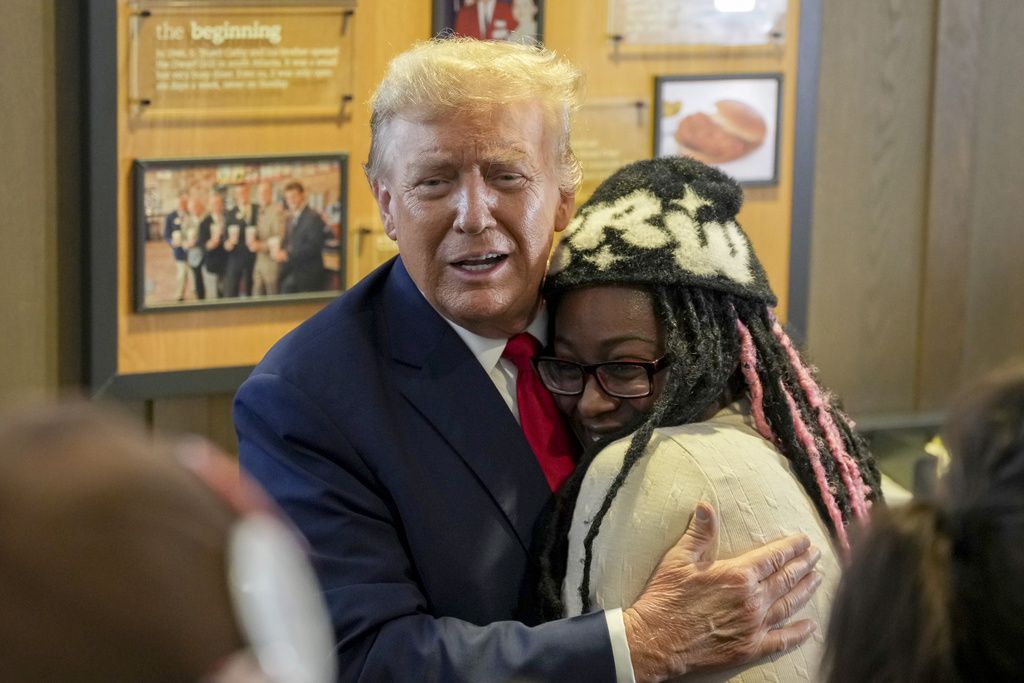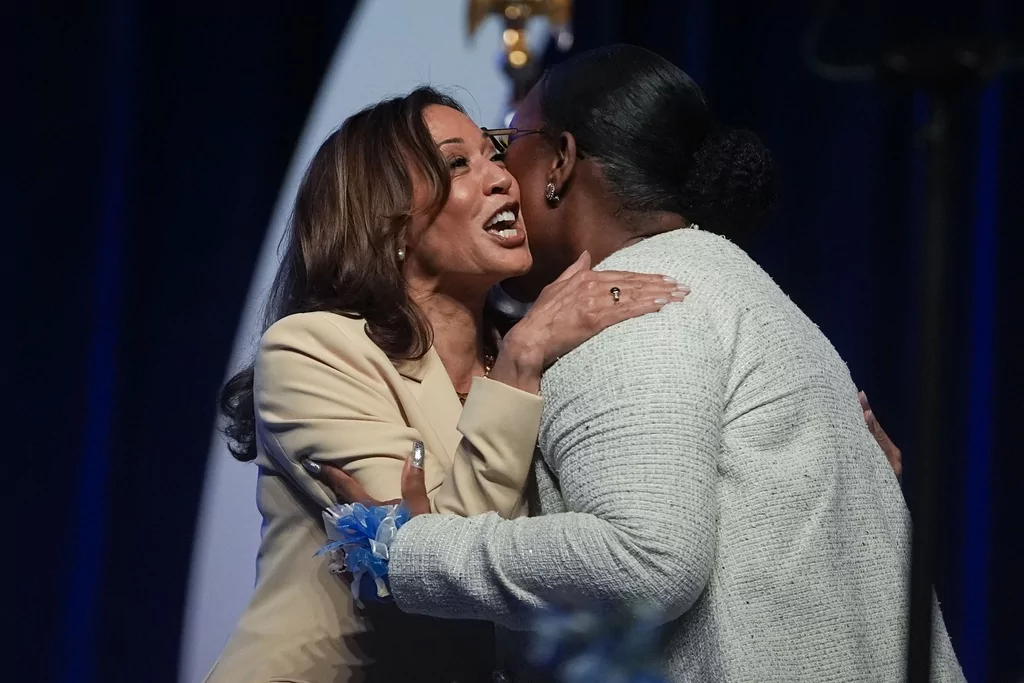
With just a hundred days until the presidential election, Vice President Kamala Harris is moving to shore up support in critical voting blocs and swing states that could make the difference between a win and a loss this November.
From campaigning in Wisconsin and Georgia to gearing up enthusiasm from black voters and unions, here are a few ways the presumptive Democratic nominee is working to turn vulnerabilities into assets.
Stumping in Wisconsin
Two days after President Joe Biden dropped his reelection bid, Harris held her first presidential campaign rally in Milwaukee, Wisconsin. The Vice President’s decision to hold the event, which was on the books before Biden made his campaign exit, indicates that she agrees Democrats need to shore up support in the swing state. While Harris’s boss narrowly flipped Wisconsin blue in 2020, former President Donald Trump is currently leading by a razor-thin margin in the battleground race.

Keeping Georgia Blue
If the Harris campaign considers Wisconsin vulnerable to Republican gains this November, it’s also gearing up for a fight in Georgia. Biden’s heir apparent is set to rally voters at the end of July in the state’s largest city. Although Georgia leans red at the state level. Biden squeaked out a win in Georgia during the 2020 presidential elections with a 49.47% to 49.24% margin of victory.
On July 30, Harris is scheduled to fire up her base in Atlanta, a Democratic stronghold that Trump has also made two visits to this year.

Pulling the black Vote
As Harris stumps to win battleground states such as Georgia and Minnesota, her visits to majority-minority cities, including Atlanta and Milwaukee, also come as an effort to boost Democratic support among black voters.
Biden’s tenure as the presumed Democratic nominee oversaw stinging losses of black support. A survey from the Cut in July showed only 64% of black women supported Biden, down from 95% who supported the Democrat in 2020.
As she steps into Biden’s shoes, Harris has been quick to focus on the voting block that has traditionally been a Democrat stronghold. Days after she appeared to become Biden’s successor in the race for the White House, Harris chose to hold one of her first campaign events at the historically black sorority Zeta Phi Beta in Indianapolis. Speaking to black voters, Harris encouraged the audience to “make history” with their support for Democrats this November.

Unions for the Win
Unions are another critical component of the Democratic coalition. During his time in the Oval Office, Biden has enjoyed critical support from big labor, and has touted himself as “the most pro-union president in American history.” The eighty-one-year-old even made history by becoming the first president to join a labor union on strike.
As he passes the torch to Harris, the vice president has moved to make her own appeal to unions. This week, she addressed the American Federation of Teachers convention in Houston, warning attendees that Trump wants to “return America to a dark past.”
Harris has also pledged she would work to sign the PRO Act into law, which expands protections for workers when unionizing or collectively bargaining.
Meanwhile, the AFT, one of the most powerful teachers unions in the country, swiftly endorsed after she declared she would make a bid for the White House.
CLICK HERE TO READ MORE FROM THE WASHINGTON EXAMINER
Next Moves
As Harris stares down a deadline to create a winning campaign, she will also likely gear up outreach to Latino voters in a bid to stop GOP inroads into the minority voting block. In July, Sen. Ted Cruz (R-TX) launched a multimillion-dollar Spanish advertising campaign in his state. While Texas is considered a token win for Trump, Harris will need to focus on outreach to Hispanics in battleground areas such as Nevada and Arizona.
Meanwhile, picking Gov. Josh Shapiro (D-PA) as a vice presidential candidate could shore up support for Harris in Pennsylvania. The swing state will be crucial to a Democratic victory this November.








